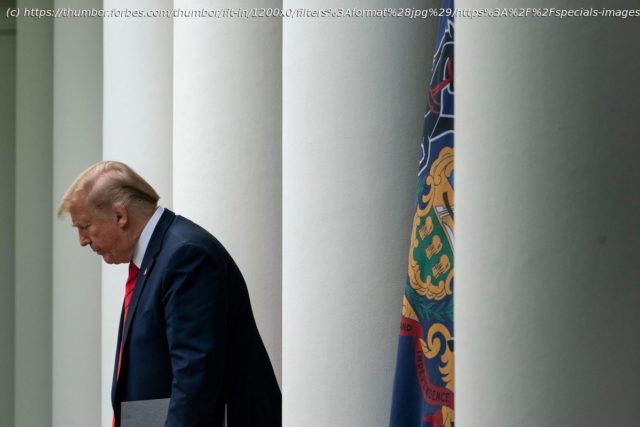State prosecutors say Trump’s financial records can show he paid hush money to two women he had affairs with. Trump says he has sweeping immunity from revealing such information.
Unlike every other President since Jimmy Carter, President Trump has refused to make his tax returns and other financial records public. Especially with the 2020 election coming up, this refusal is enormously consequential. From a political point of view, Trump’s financial records would reflect on his claims of being a very successful businessman, whether he has serious conflicts of interest or is beholden to any private interests or foreign powers as a result of his financial dealings, and, of course, they reflect on his honesty.
Even more importantly, Trump’s financial records are also evidence of whether or not he committed certain crimes. Today’s Supreme Court argument concerns subpoenas issued by the New York District Attorney’s Office seeking evidence about alleged “hush money” that Trump paid to two women to cover up his alleged affairs with them.
The subpoenas are not directed to Trump. They are directed to private parties such as his accounting firm, Mazars USA LLP. Mazars has stated that it will comply with the subpoena unless a court orders it not to, so the Supreme Court is Trump’s last hope to prevent the release of the information. (The Court also heard arguments on a subpoena issued by the House of Representatives, but, for space reasons, this post will stick to the New York subpoena.) The President’s personal lawyer made some sweeping arguments before the Court today. He argued that because a sitting President cannot be criminally charged (although there is some dispute over that) then he can’t be criminally investigated either. If the Court accepted that argument then the subpoena would be automatically invalidated.
The General Counsel for the District Attorney’s office countered that such a rule could let the statute of limitations run out, effectively placing the President above the law. Even if Supreme Court tolled the statute of limitations for the President, essentially stopping the clock until the President left office, the statute of limitations could still run out for any private parties that participated in any crimes committed by the President.
Start
United States
USA — mix Finally! The Supreme Court Hears Case On Whether Prosecutors Can Subpoena Trump’s...






